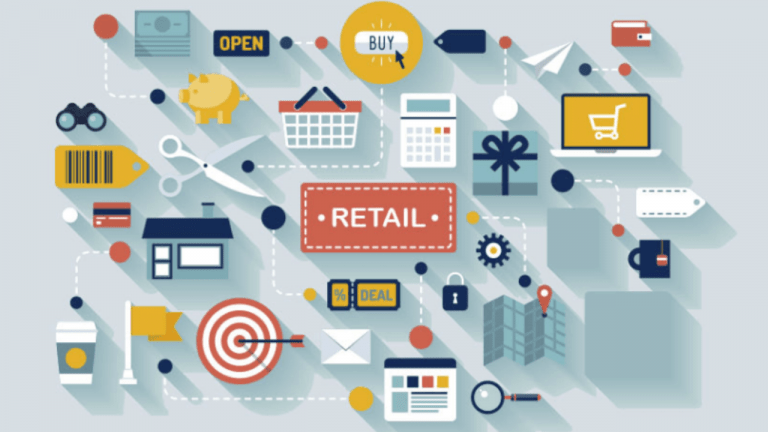The Role of Retail in a Growing Economy
Dec 22, 2023 By Susan Kelly
Introduction
A product's final destination is the consumer, and retailers play a crucial role in making that happen. Wholesalers and retailers frequently deal with one another to acquire inventory. When that happens, we can call the commodity "finished." Wholesalers and distributors are the middlemen from whom retailers can source goods. The wholesaler consolidates the global product range. It reformats the products so that selling and distributing them is more straightforward. The final link in the distribution system before goods reach consumers is retailers.
Importance Of The Retail Industry To The U.S. Economy
The health of the retail sector can be gauged by looking at sales figures. The United States Census releases a monthly report detailing retail sales. The latest data can be found in the U.S. retail sales report. The retail sector in the United States brought in $5.57 trillion in revenue in 2020. Since its low point of $1.8 trillion in 1992, this figure has more than tripled. Online stores, vending machines, and direct sales establishments bring in the most money ($978 billion), followed by the sale of automobiles. The next largest industry, at $850 billion, is grocery retailers. The online retail sector generated $888.5 billion, significantly from 1992's $35.0 billion. Online shopping has seen a tremendous uptick in popularity and growth, contributing to this trend.
As a result of the positive association between consumer spending and national financial indicators, the retail sector is an integral part of the economy. In statistics, a correlation exists between two variables if the change in one causes a corresponding change in the other and vice versa. In other words, consumer spending is the song that keeps the economy going. It makes sense, considering the massive impact of the retail sector on the economy, thanks to the number of businesses involved in its manufacturing, distribution, storage, and sale to consumers.
Sector Economic Insights
It predicts a decline in global growth from 2021's 5.6% to 2022's 4.4%. Even though the sector experienced tremendous growth in 2021 thanks to the increase in consumer spending, supply chain disruptions are anticipated to slow the industry's expansion in the years to come. Retail sales fell around the world as a result of the health crisis, which was caused by a combination of factors, including the economic crisis sparked by the spread of COVID-19 and the closure of stores, and other physical distancing measures that have reduced the number of opportunities for people to shop face to face. Given the lack of information about the course of the pandemic and the difficulties in the supply chain, the future of this industry seems hazy at best.

The Gist Of The Opinion
The recent proliferation of allegations concerning retail expansion in the EU over the past few years has taken numerous forms, including a declaration from 439 members of the European Parliament. Most of these complaints focus on what they see as high-volume stores' exploitation of their dominant position in the marketplace at the expense of smaller businesses, farmers, and even consumers. Attempts to drive small independent firms out of business have been linked to alleged malpractices between retailers and suppliers.
As long as there is no clear proof of abuse of market power or harm to consumers in violation of Article 81 of the EC Treaty, there should be no penalties for a company's financial success. Positive news for Europe's economy can be found in the retail sector's continued expansion and success. Many once-small European corporations have expanded into multinational conglomerates with offices in China, the United States, the Far East, and Russia. Companies that have found success in the domestic market have successfully adapted their strategies for use in some of the world's most competitive retail markets.
Customer Convenience:
The retail sector performs the most crucial function by delivering consumable products to customers' front doors. Retailing benefits consumers because merchants' marketing efforts make it possible for shoppers to choose from a wide range of goods and services. The utilities of location, timing and ownership can all be facilitated through retail. The quality of service a store provides also contributes to the overall appeal of the product they sell. Retailers keep inventory and make sure customers can get the things they need when they need them. Convenience stores are open later during the week to give customers more options.

Conclusion:
Since world-class retailers are interested in enhancing their employees' health, productivity, and safety and reducing their environmental impact by conserving energy and water, they may help set new benchmarks in these areas. The International Finance Corporation (IFC) and the French retail giant Auchan collaborated to create a training program to advise Ukrainian meat producers on meeting global food safety and quality standards. Suppliers' production efficiency increased by 20% due to the program's efforts to standardise and streamline business practices. The local bakers' supply chain is training thanks to a new initiative.








